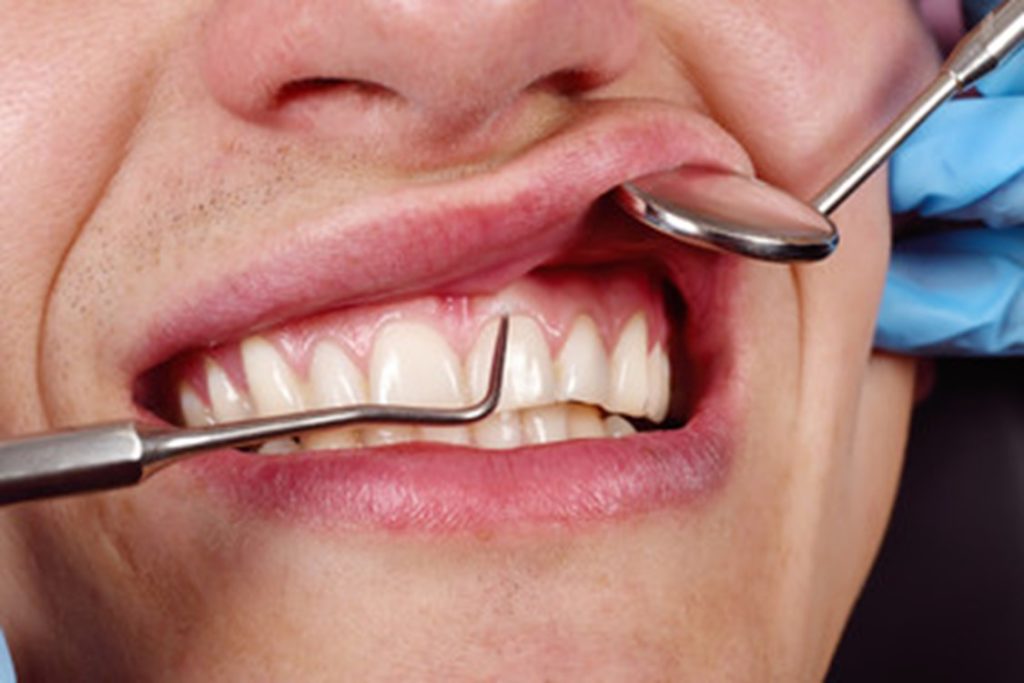
Your genetics determine virtually everything about your body, from the color of your eyes and hair to the length of your big toes. But did you know that your genes can also leave you vulnerable to certain medical conditions? These can vary from the mundane to the serious; but one that you should definitely be mindful of is gum disease! Gum disease isn’t just caused by poor oral habits—unfortunately, genetics can sometimes play a part as well. Keep reading to learn more from your dentist about the link between your genes and gum disease along with some tips for keeping your smile healthy.
How Can Genetics Cause Gum Disease?
Studies show that children of parents with periodontitis, which is an advanced form of gum disease, are more likely to have problems with their own gums—even if they practice regular oral hygiene. The body’s immune system is pretty complex, and among all of the things designed to protect you is a gene called beta defensin 1, or DEFB1. This unique gene is responsible for protecting you from the likes of tooth decay and gum disease.
But unfortunately, you can inherit DEFB1 deficiency from your parents, leaving your gums much more vulnerable. You can also inherit weaker tooth enamel from your parents; and since your enamel compromises your tooth structure, weakened enamel can lead to cavities and tooth loss that puts you at risk for gum issues.
Common Signs of Gum Disease
Gum disease isn’t always obvious, but there are a few early signs you should watch for including:
- Chronic bad breath.
- Sensitive and tender gums.
- Excessive bleeding when brushing and flossing.
- Gums that appear dark red or purple (healthy gums are a shade of light pink).
- Receding gums (or teeth that appear longer than normal).
Tips for Reducing Your Risk of Gum Disease
Even though your genetics can influence your long-term oral health, it doesn’t mean that you should give up trying to protect your mouth! Consider the following tips to ensure optimal oral health and to protect yourself from gum disease:
- Brush your teeth twice a day using a soft-bristled toothbrush and fluoride toothpaste.
- Don’t skip flossing; it’s equally as important as brushing! Use dental floss, dental floss picks, or a Waterpik to reach those hard-to-access spaces between your teeth.
- Avoid unhealthy oral habits such as smoking and using tobacco products, overbrushing your teeth, or using your teeth as tools.
- Eat a well-balanced and vitamin-rich diet and drink plenty of water.
- Visit your dentist at least twice a year for regular checkups and cleanings.
Even though it might not seem like it, your genes can be the catalyst for gum disease—even if you’re diligent about taking care of your mouth. If you’re concerned about how your genetics might be causing gum disease, don’t hesitate to speak with your dentist promptly to get the treatment you need.
About the Author
Dr. Rodger Song has over 30 years of experience in dentistry and is honored to serve patients and families in Flower Mound, TX. Dr. Song received his dental doctorate from the Baylor College of Dentistry and is a member of several professional organizations including the American Dental Association and the prestigious Academy of General Dentistry. If you have any questions or concerns about gum disease or would like to schedule a visit, feel free to contact Dr. Song through his practice’s website or over the phone: (972) 906-9797.

